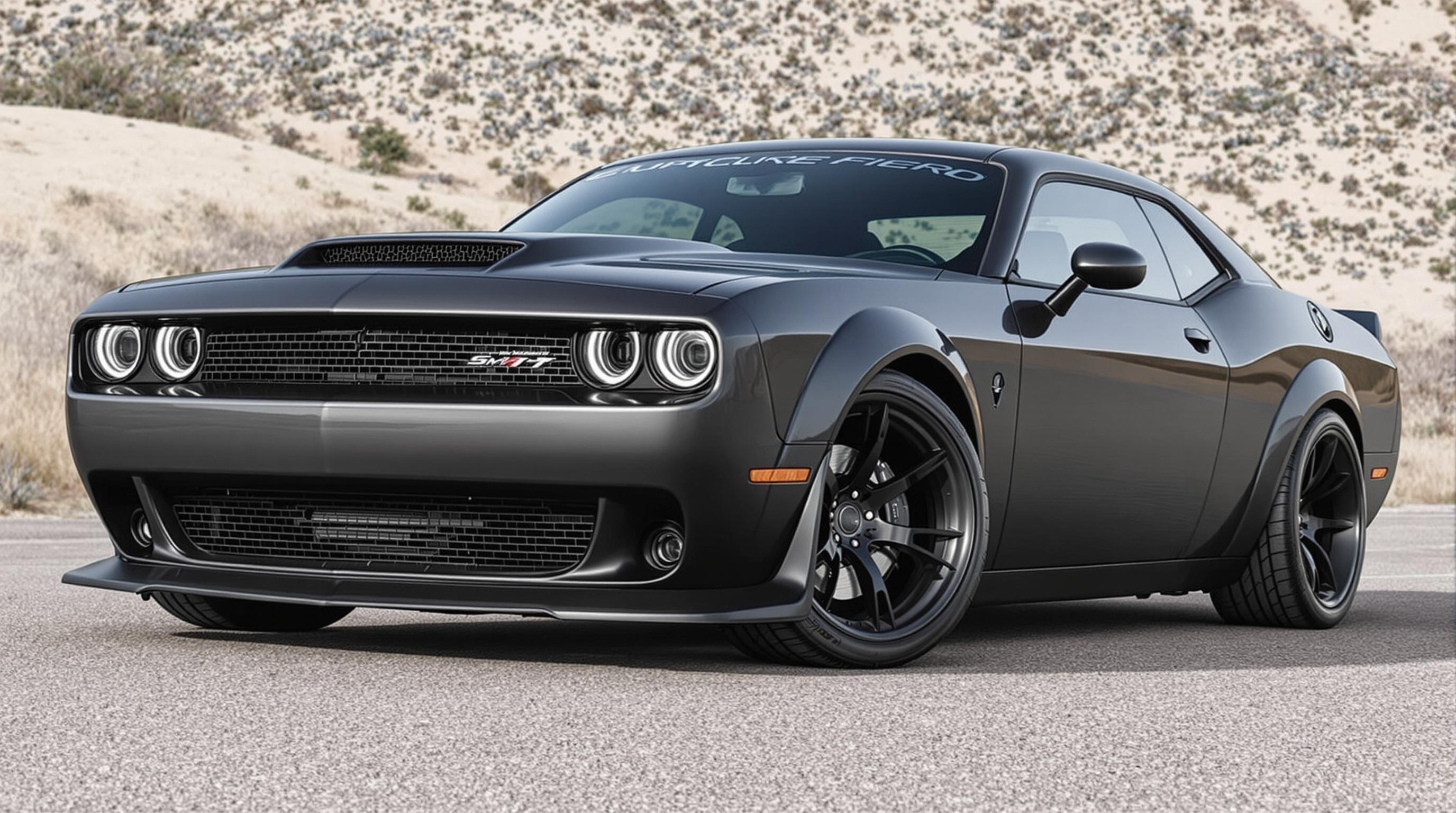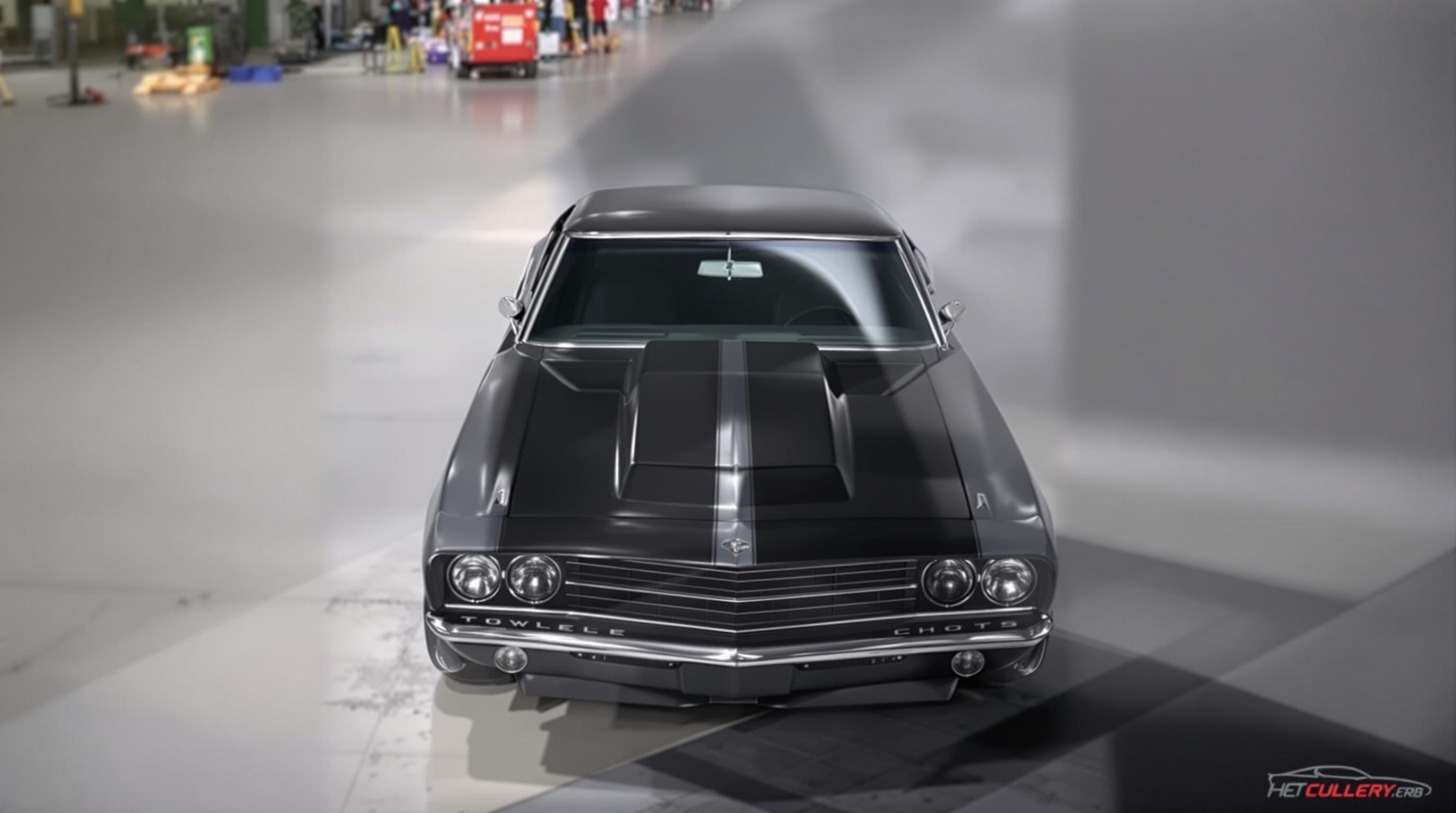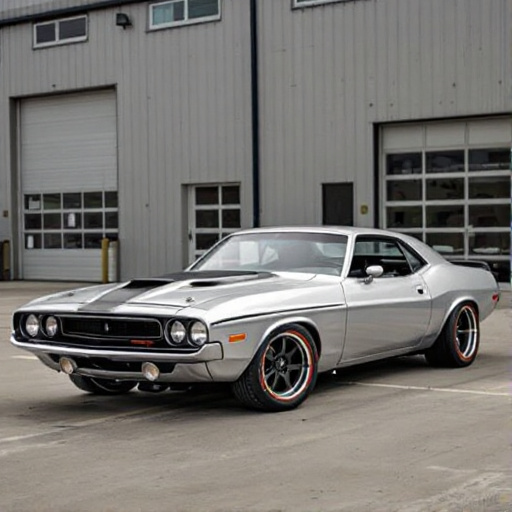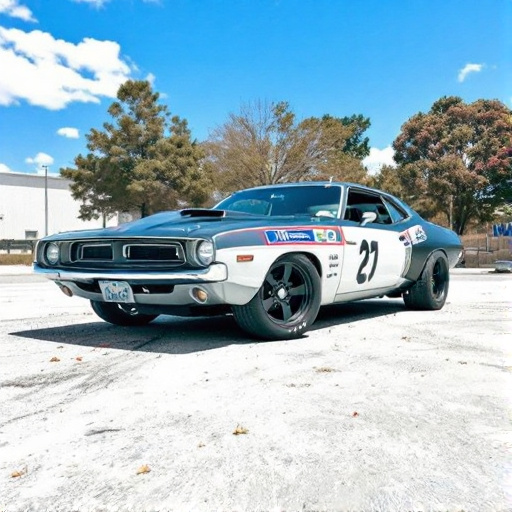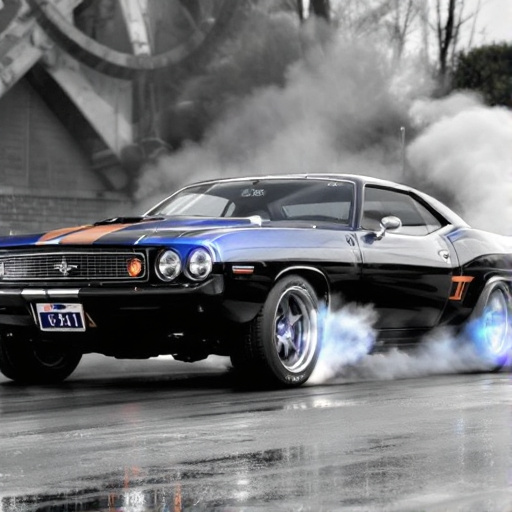Featured Articles
- Reviving the Roar: How Electric Conversions Are Changing the Fate of Classic American Muscle Cars
- Revving Up Nostalgia: How American Muscle Cars Shaped 70s Subculture and Today's Retro Trends
- Revving Up Nostalgia: The Revival of Classic Muscle Car Culture Among Gen Z Enthusiasts
- Revving Up Nostalgia: The Surprising Resurgence of Muscle Cars in Eco-Friendly Customizations
- Revving Up Nostalgia: The Surprising Rise of Vintage Muscle Car Restoration in the Electric Era
Revving Up Nostalgia: The Revival of Classic Muscle Car Culture Among Gen Z Enthusiasts
Revving Up Nostalgia: The Revival of Classic Muscle Car Culture Among Gen Z Enthusiasts
Classic muscle cars are roaring back into popularity, captivating the hearts of Gen Z enthusiasts who crave a blend of nostalgia and raw power. This revival reflects not only a desire for vintage aesthetics but also a yearning for a sense of freedom that modern cars often lack.
Finding Freedom on Four Wheels
There’s a certain thrill that comes with hearing the low rumble of a V8 engine starting up that today's electric vehicles simply can’t replicate. According to a study by the Specialty Equipment Market Association (SEMA), 56% of young car enthusiasts are drawn to classic cars for their unique sound and personality, a stark contrast to the quiet hum of contemporary vehicles.
The Great American Road Trip
Road trips have transformed with modernity, but for many Gen Z’s, nothing beats the nostalgia of a good old-fashioned drive in a muscle car. A study conducted by the National Highway Traffic Safety Administration found that 73% of respondents aged 16-25 find driving to be a form of personal expression. Whether cruising down Route 66 in a Chevrolet Camaro or taking the scenic route in a Dodge Charger, the freedom of the open road is a siren’s call that resonates strongly within this demographic.
Social Media: The New Car Showroom
Ah, social media—the modern-day equivalent of a classic car showcase. Platforms like Instagram and TikTok have become fertile ground for showcasing everything from custom builds to vintage finds. Enthusiasts like 20-year-old Alex “MuscleMan” Brown post jaw-dropping before-and-after videos, demonstrating the restoration of a 1970 Plymouth Barracuda. His content has amassed over 200,000 followers, all eager to engage with the classic culture that celebrates pure automotive beauty.
Customization and Personalization: The New Black
For Gen Z, personalization is key. Unlike previous generations, today’s car enthusiasts seek to make their muscle cars a reflection of their individual styles. This trend is highlighted by the fact that the aftermarket automotive industry is expected to reach $41 billion by 2026, according to a report from Allied Market Research. Whether it’s a custom paint job or unique interior modifications, personalizing classic muscle cars allows Gen Z to stand out from the crowd.
The Classics vs. Today's Tech
In discussions about classic muscle cars versus today’s high-tech offerings, a common perspective emerges: less is more. Sure, modern vehicles have automatic braking and touchscreen navigation, but many in Gen Z prefer the raw experience of driving a car that communicates with your senses. A 2022 report by the Automotive News showed that 52% of car-buyers aged 18-29 would prefer a car that doesn’t rely heavily on technology. For them, muscle cars symbolize freedom—an escape from a world dominated by screens.
A Case Study: 'Young Guns' Car Club
Take the “Young Guns” car club in Los Angeles as a prime example of this resurgence. Founded in 2021 by a group of 25 enthusiasts, the club highlights the intersection of classic muscle car culture and contemporary interests. The club hosts monthly meet-ups, car shows, and even “garage nights” where members collectively restore vehicles. Their Facebook group boasts over 5,000 members, and they have plans for a regional convention in 2024, showcasing the growing popularity of muscle cars amongst younger drivers.
Eco-Friendly Dilemmas
However, this revival is not without its challenges. The environmental implications of driving gas-guzzling muscle cars are concerning to some younger enthusiasts. To address this, many Gen Z members are turning to classic car restorations that focus on sustainability, such as electric engine swaps. Companies like Electric GT specialize in converting muscle cars, allowing nostalgic cravings to coexist with modern environmental sensibilities. This shows that for today’s youth, being eco-friendly doesn’t have to mean sacrificing style or passion.
Nostalgia, Identity, and Community
It’s interesting how nostalgia can create identity, especially for a generation shaped by economic uncertainty and changing social landscapes. The revival of classic muscle cars fosters a sense of belonging among enthusiasts. Many share a common narrative—their fathers or grandparents had these cars, and they're not just memories; they’re a communal bond. The phrase “What’s your ride?” has transformed into a conversational starter among peers, shedding light on the shared history that muscle cars represent.
Women in Muscle Car Culture
Traditionally, muscle car culture has been male-dominated, but the landscape is changing. According to a report by MotorTrend, 40% of new car buyers aged 18-34 are women, and this is reflected in the muscle car community as well. Women like 22-year-old Jaime Rodriguez, who owns a 1969 Ford Mustang, are paving the way for more inclusive participation. Rodriguez emphasizes that she is not just a co-driver; she is a builder. “I want to crush stereotypes while loving the ride,” she states, advocating for more female representation in car culture.
Pop Culture Influence
Let’s not underestimate the influence of pop culture on this revival. Movies like “Fast & Furious,” “Transformers,” and TV shows like “Wheeler Dealers” have made muscle cars more accessible and appealing to younger audiences. The thrilling action sequences and stunning visuals spotlight these classics, transforming them into icons of cool. A survey done by Nielsen revealed that 65% of Gen Z members say film and TV have had a significant impact on their interest in cars.
The Future: Bridging the Generational Gap
The implications for the future are exciting. While older generations reminisce about muscle cars as a pivotal part of their youth, Gen Z sees them as an opportunity to merge nostalgia with modern values. This bridging of the gap can lead to intergenerational car clubs, car shows, and forums where enthusiasts of all ages can share experiences and knowledge. It’s not simply about cars; it's about stories, community, and shared visions of what’s possible when we respect the past while looking toward the future.
A Humorous Interlude: The Car Whisperer
And let’s not forget—we have our very own “Car Whisperer” in the Gen Z community. Meet Kyle, a self-proclaimed expert who swears he can talk to cars. “You’ve just got to listen to their whine, their purr,” he says with a straight face. He claims his 1973 Pontiac Trans Am responds better to ABBA than Metallica, and his friends can’t help but roll their eyes. However, there's something charming in his approach that demonstrates how wacky yet passionate the community can be! After all, why shouldn’t cars have their unique personalities?
Conclusion: A Lasting Legacy
In conclusion, the revival of classic muscle car culture among Gen Z enthusiasts isn’t merely a phase—it's a lasting legacy. Through social media, customization, community, and a profound connection to the past, this generation is carving a unique path that honors tradition while embracing the future. Whether it’s the roaring engine of a vintage car or the thrill of a weekend drive, muscle cars symbolize more than just automobiles. They represent freedom, identity, and an unyielding spirit that transcends generational divides.
So next time you hear the echo of a classic muscle car zoom past, remember that it’s not just a car; it’s history, passion, and a lifestyle that continues to inspire young and old alike.
